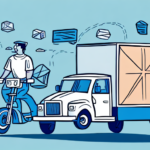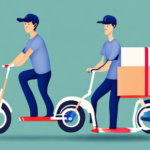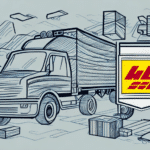Courier employment offers a dynamic and flexible career path for individuals seeking adventure and autonomy in their work. This comprehensive guide delves into the various aspects of courier jobs, exploring the industry's evolution, the advantages of this career choice, and essential insights for aspiring couriers.
Introduction to Courier Employment
Courier employment involves the timely delivery of packages and parcels to various destinations. Couriers can be employed by major companies such as FedEx, DHL, or UPS, or operate as self-employed professionals serving multiple clients. This role is pivotal in supporting the global economy by ensuring efficient transportation of goods for businesses and individuals alike.
Advantages of Courier Employment
- Flexibility: Couriers can set their own schedules, making it ideal for those balancing other commitments such as education or family care.
- Physical Activity: Unlike sedentary office jobs, courier roles keep you active and physically engaged.
- Earning Potential: Experienced couriers can earn competitive salaries, with opportunities for increased income through additional deliveries.
- Networking Opportunities: Regular interactions with diverse clients can lead to valuable business connections and partnerships.
Benefits of Being a Self-Employed Courier
Self-employed couriers enjoy greater control over their work schedules and client base, allowing for higher earning potential by setting their own rates. Moreover, the ability to work from various locations, facilitated by mobile technology, provides unparalleled flexibility and convenience.
However, self-employment also entails responsibilities such as managing taxes, insurance, and vehicle maintenance. Successful self-employed couriers are organized and disciplined, ensuring they can handle these additional duties effectively.
Evolution and Future of the Courier Industry
Over the past decade, the courier industry has undergone significant transformations driven by technological advancements and shifts in consumer behavior. The proliferation of e-commerce has exponentially increased the demand for reliable courier services.
Technological Advancements
Modern couriers utilize GPS for route optimization and real-time package tracking, enhancing delivery efficiency and customer satisfaction. The integration of machine learning and automation is further streamlining delivery processes, potentially reducing delivery times and operational costs.
According to a report by Statista, the global courier and parcel market is projected to grow steadily, reflecting the increasing reliance on online shopping.
Future Trends
- Autonomous Vehicles: The development of self-driving delivery vehicles may revolutionize the industry, though widespread adoption remains several years away.
- Green Logistics: A shift towards sustainable practices, including the use of electric vehicles and eco-friendly packaging, is becoming increasingly prevalent.
- Drone Deliveries: Drones offer the potential for faster deliveries, particularly in urban areas, though regulatory and technical challenges persist.
Becoming a Courier
Embarking on a career as a courier requires meeting specific qualifications and honing essential skills. Understanding the recruitment process and preparing adequately can enhance your chances of securing a desirable position.
Requirements
- Valid driver's license and a clean driving record.
- Reliable transportation, whether a car, motorcycle, bicycle, or scooter.
- Commercial driver's license (for certain companies).
- Previous delivery or courier experience is advantageous.
Essential Skills
Effective couriers possess strong time management abilities, ensuring timely deliveries within specified timeframes. Excellent communication skills are crucial for interacting with clients and resolving any delivery issues professionally.
Career Growth Tips
- Specialize in niche deliveries, such as medical supplies or perishable goods, to increase earning potential.
- Build a reliable reputation by consistently providing excellent customer service.
- Network with industry professionals and seek mentorship opportunities to advance your career.
Job Market and Daily Life
The courier industry presents a robust job market with numerous opportunities, particularly in urban areas where high demand necessitates a large workforce. However, competition can be intense, and the role often involves physical and logistical challenges.
Opportunities and Challenges
The increasing volume of online orders has led to a surge in courier job openings. However, candidates must navigate the physical demands of the job, such as lifting heavy packages and enduring long hours under varying weather conditions.
According to the Bureau of Labor Statistics, employment for couriers and messengers is projected to grow faster than average, driven by e-commerce growth.
A Day in the Life
A typical day for a courier involves planning and executing multiple deliveries, navigating through traffic, and maintaining constant communication with clients and dispatchers. Efficiency and adaptability are key to managing high volumes of deliveries, especially during peak seasons.
Health and Safety
Ensuring personal safety and the secure handling of packages is paramount. Couriers should adhere to safe driving practices, regularly maintain their vehicles, and use appropriate equipment for lifting and transporting items to minimize the risk of accidents and injuries.
Adapting to Changes in Consumer Behavior and Technology
The courier industry must continually adapt to evolving consumer demands and technological innovations to remain competitive and efficient.
Consumer Behavior Shifts
The rise of same-day and next-day delivery services has heightened customer expectations for speed and reliability. Couriers must leverage real-time data and predictive analytics to optimize delivery routes and meet these increasing demands.
Impact of Technology
- Real-Time Tracking: Enhances transparency and allows customers to monitor their package's progress.
- Mobile Applications: Facilitates seamless communication between couriers and clients, enabling efficient management of delivery requests.
- Automation: Streamlines operations, reducing manual workload and improving overall efficiency.
Environmental Considerations
With growing environmental awareness, the courier industry is adopting more sustainable practices. This includes using electric vehicles to decrease carbon emissions, implementing recyclable packaging materials, and optimizing delivery routes to reduce fuel consumption.
Research from the Environmental Protection Agency highlights the significant impact of transportation on greenhouse gas emissions, underscoring the importance of sustainable practices in the courier sector.
Conclusion
Courier employment presents a dynamic and rewarding career option for individuals who thrive in active roles and value flexibility. As the industry continues to evolve with technological advancements and shifting consumer behaviors, couriers who adapt and embrace new opportunities will find sustained success and growth.
By focusing on developing essential skills, leveraging technology, and committing to sustainable practices, couriers can navigate the challenges of the industry and capitalize on the abundant opportunities it offers.




















